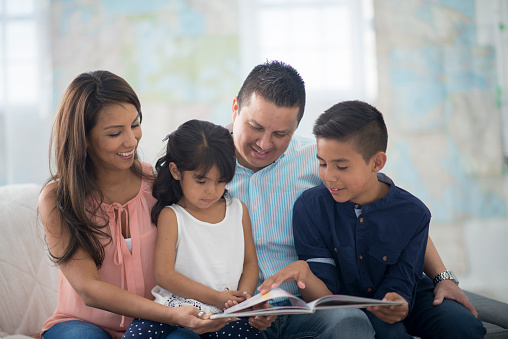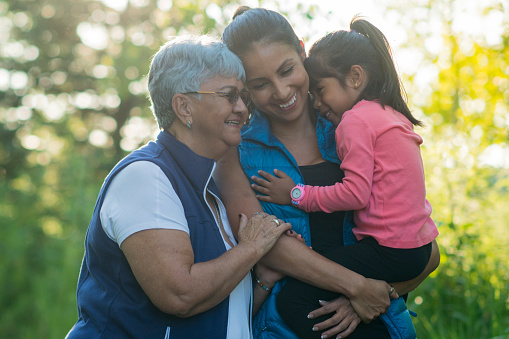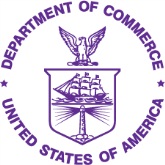National Household Education Surveys Program 2019 (NHES:2019) Spanish Recruitment Materials Focus Groups
NCES Cognitive, Pilot, and Field Test Studies System
Attachment 2 - NHES 2019 Spanish Materials Focus Groups - Focus Group Materials
National Household Education Surveys Program 2019 (NHES:2019) Spanish Recruitment Materials Focus Groups
OMB: 1850-0803
Attachment 2
Focus Group Materials
National Household Education Surveys Program 2019 (NHES:2019) Focus Groups with Spanish Speakers for Development of Tailored Recruitment Materials
OMB #1850-0803 v. 225
National Center for Education Statistics
Institute of Education Sciences
U.S. Department of Education
Washington, D.C.
March 2018
Table of Contents
Attachment 2-A. Moderator’s Guides: Parents and Nonparents: English and Spanish 2
Attachment 2-B. NHES Bank of Value Statements: English and Spanish 20
Attachment 2-C. NHES Image Bank 22
Attachment 2-D. NHES Respondent Screener Contact Materials: English and Spanish 32
The National Household Education Surveys Program (NHES)
Attachment 2-A. Moderator’s Guides
Research Questions:
How do members of these households interact with mail? What mail gets opened in the household? When? By whom? What mail gets thrown out? Why?
How do members of these households decide to participate in a survey? The survey’s length? The incentive? The importance?
Would members of these households prefer to complete a survey by web or by paper or by calling into an operator? Why? What are the positive and negative aspects of each?
Are there specific endorsements, colors, or photos for the front of the survey that would influence these household members toward participating?
Parent participants:
What is important to parents of young children about care arrangements? What messages would be most salient to parents of young children about the unique data from the Early Childhood Program Participation Survey?
What is important to parents of school-aged children about their relationship with their child’s school? What message would be most salient to parents of school-aged children about the unique data from the Parent and Family Involvement in Education Survey?
Non-parent participants:
What language and/or visuals will help non-parents understand that it is important for them to complete and return the survey even though they do not have children in school?
If they see this is an education survey, what will make them read further and complete the survey?
Focus Groups among Spanish-Speaking Parents
INTRODUCTION (10 MINUTES)
My name is [MODERATOR] and I am working on behalf of the National Center for Education Statistics (NCES), which is a part of the U.S. Department of Education.
Welcome to our focus group session and thank you for joining us.
We are looking to get your honest and candid opinions in this session. I will be asking questions, which are meant to generate discussion. There are no right or wrong answers. I encourage you to express your opinion even if it might be different from other participants.
We want all types of viewpoints – positive, negative, and everything in between. We do not have to come to any consensus on what we talk about. Each individual opinion is important, so I would like to hear from everyone, but please speak one at a time.
We will be audio and video recording the session so that I have a record of the discussion to write my report. Once the report is written I will destroy the recordings.
Your feedback will be used only for the purposes of our report and may not be used for any other purpose except as required by law. No names will appear in the summary report about what we learn through this focus group.
If at any time you decide you do not want continue, that is your choice and you may stop.
Before we begin, do you have any questions about what I just said?
Draft materials will be presented along with other information. I want to point out that these are not materials that I have developed, so you will not flatter me or insult me by anything that you say. My job is to ensure that we cover everything that we need to cover and that I keep the discussion going. I have no stake in the outcome of the discussion.
I’d like everyone to introduce themselves. Let me start (MODERATOR INTRO). Now, tell me about yourself. When you do, please be sure to tell me your name (first name is okay), what age or grades your children are in, and anything else you’d like to tell us about yourself.
GENERAL REACTIONS TO HOUSEHOLD MAIL (5 MINUTES)
Let’s start by talking about what happens when the mailman delivers mail to your house.
How do members of your households interact with mail?
Who tends to be the person who opens the mail?
What mail gets opened in the household?
When?
What mail gets thrown out? Why?
ATTITUDES TOWARD SURVEYS [5 MINUTES]
Now let’s talk about surveys in general. What was the last survey that you participated in? Why did you choose to participate?
REACTIONS TO ADVANCE LETTER AND INVITATION LETTERS (25 MINUTES)
Let’s talk about a survey called the National Household Education Survey or NHES. Before we start talking about the survey itself, I’d like to talk first about the process for inviting people to take the NHES. For most people, the first time they hear about the NHES is when they receive an advance letter about it. An advance letter is a letter that is mailed to a person’s house to let him or her know that the household will be getting the NHES survey questionnaire and information about how to fill it out. Let’s take a look at a sample advance letter [SHOW ADVANCE LETTER IN ENVELOPE]
This is the first information you would receive in the mail at your home address if you were asked to participate in the NHES. What would you be most likely to do with this piece of mail? (Throw it out? Open it? Read it? Give it to someone else in your household?)
For those who said they would open it – what are some reasons why?
For those who said they would not open it or it would get thrown away – what are some reasons why?
Are there any changes that we could make to the envelope that would make you more likely to open it?
Let’s take a few minutes to read the letter.
What is your overall reaction to the letter?
Is there anything that catches your attention in the letter?
Is the letter clear, or does it have any confusing information?
After reading this, how likely would you be to watch for the next mailing, which will have the survey and more information?
After reading this, how likely would you be to complete the NHES after you receive it?
Do you have additional questions about the NHES after reading this? What are some of the questions you have?
Is there additional information that should be included in the letter? What information?
A short time after receiving the advance letter, the household would then receive a letter inviting them to take the survey. There are two different types of the letter that a person could receive – Option 1 would be a letter that invites the person to go to a link online to take the survey. Option 2 would be a letter that comes with a paper survey to fill out. In both letters, a phone number is provided in case you want to call to do the survey. I’d like to talk about both of the letters.
But first, let’s talk about doing surveys. If you chose to do the NHES survey, would you prefer to complete a survey by web (online) or by paper or by calling into an operator?
Why? What are the positive and negative aspects of each?
Which format would make you most likely to complete the survey?
Now let’s look at the letters. [HAND OUT BOTH FORMATS OF LETTERS – THE LETTER FOR THE PAPER SURVEY WILL CONTAIN SURVEY QUESTIONNAIRES IN ENGLISH AND IN SPANISH].
Let’s start with the letter with the web link to the survey. [PLAIN WHITE ENVELOPE WITH LETTER CONTAINING LINK TO ONLINE SURVEY].
What is your overall reaction to the letter?
Is there anything that catches your attention in the letter?
Is the letter clear, or does it have any confusing information?
How likely would you be to go online to take the survey? Why?
Does the $5 make you more or less likely to take the survey?
What are some other aspects of the letter that make you more or less likely to take the survey?
Do you have additional questions about the NHES after reading this? What are some of the questions you have?
Is there additional information that should be included in the letter? What information?
Now let’s look at the other letter – this letter comes with paper formats of the survey, which we will look at in just a moment.
What is your overall reaction to the letter?
Is there anything that catches your attention in the letter?
Is the letter clear, or does it have any confusing information?
How likely would you be to fill out and return one of the enclosed surveys? Why?
Does the $5 make you more or less likely to take the survey?
What are some other aspects of the letter that make you more or less likely to take the survey?
Do you have additional questions about the NHES after reading this? What are some of the questions you have?
Is there additional information that should be included in the letter? What information?
BARRIERS AND BENEFITS TO COMPLETING THE SURVEY (15 MINUTES)
Now, let’s talk specifically about the survey…. [SURVEYS IN ENGLISH AND SPANISH THAT WERE INCLUDED IN THE ENVELOPE WITH THE LETTER].
We have the survey in English and in Spanish – which one do you think you would fill out? Why?
Does the sample survey form seem straightforward to you?
Do you think you would have any difficulties in filling it out? [If yes, what are some of the difficulties you foresee?]
How long do you think it would take you to fill out the questionnaire?
Are there specific endorsements for the front of the survey that would make you more likely to participate in the survey? For example, if it showed the seal of the Department of Education? Or the logo of a teachers’ organization? What organizations would you listen to if they were endorsing this survey?
Are there specific visual elements such as colors and photos for the front of the survey that would make you more likely to participate?
Are there specific visual elements that we could add to the envelope that would catch your attention and make you more likely to open it?
What if we included some of these visual elements on the survey? [SHOW OPTIONS FOR VISUAL ELEMENTS]
Which of these visuals appeal to you most? And which appeal to you least? Why?
How likely would you be to participate in NHES if you were selected to take the survey? NOTE: You are not being asked to participate. Nothing you say in this group will commit you to participating. We want to gauge your reaction to the concept of participating in NHES.
What do you think would be the benefits of having you participate in NHES? (PROBE FOR benefits to schools and children in the community)
Which of these benefits is most important to you?
SALIENCE OF YOUNG CHILDREN’S CARE AND EDUCATION AND PARENT AND FAMILY INVOLVEMENT [10 MINUTES]
You are all parents here. When you think about your children who are too young to be in elementary school (5 and younger), what is most important to you about how they are cared for while you are at work?
For those of you with children in grades kindergarten through 12, what is most important to you about your child’s school?
And for all parents, what is most important to you about what your children learn while they are at home?
REACTIONS TO STATEMENTS ABOUT NHES [10 MINUTES]
We have some statements about the NHES that I’d like for you to look at. [HAND OUT PAGE THAT HAS SHORT STATEMENTS ABOUT NHES]
Let’s take a moment to read these, and as we read these I’d like for you to circle the one or two statements that you really like and put an “x” next to any that you really don’t like.
[ASK EACH PARTICIPANT]
Which one(s) did you really like? Why?
Were there any that you really did not like? Which one(s), and why?
Is there another statement that would work better?
REACTIONS TO FOLLOW-UP MATERIALS (10 MINUTES)
If a household doesn’t respond to the first invitation to take the survey, the Department of Education sends a second letter. Let’s take a look at this letter in two formats – one that contains a link to take the survey online, and one that has the paper survey. [HAND OUT SECOND LETTER EXAMPLES]
You’ll notice that the second letter has a bit more information than the first. Does this information make you any more likely to complete and return the survey? Why or why not?
Is there anything confusing in the second letter?
And if the household still doesn’t respond after the second letter, they get a third letter through FedEx. [HAND OUT THIRD LETTER EXAMPLE]
What would your reaction be if you received a FedEx package about this? Would it catch your attention more than mail?
How likely would you be to open the FedEx envelope?
What do you think about the “Did you know?” information in this letter? Would it make you more likely to complete and return the survey? Why or why not?
Looking at the letter, would this appeal make you more likely to complete the survey? Why or why not?
At this point in the process, would there be anything that would make you more likely to complete the survey? What would that be?
CONCLUSION
If one thing could change about NHES, what would make it most likely that you would participate?
Do you have any additional comments about these materials, NHES, or surveys in general?
Thank you.
Focus Groups among Spanish-Speaking Adults (Non-Parents)
INTRODUCTION (10 MINUTES)
My name is [MODERATOR] and I am working on behalf of the National Center for Education Statistics (NCES), which is a part of the U.S. Department of Education.
Welcome to our focus group session and thank you for joining us.
We are looking to get your honest and candid opinions in this session. I will be asking questions, which are meant to generate discussion. There are no right or wrong answers. I encourage you to express your opinion even if it might be different from other participants.
We want all types of viewpoints – positive, negative, and everything in between. We do not have to come to any consensus on what we talk about. Each individual opinion is important, so I would like to hear from everyone, but please speak one at a time.
We will be audio and video recording the session so that I have a record of the discussion to write my report. Once the report is written I will destroy the recordings.
Your feedback will be used only for the purposes of our report and may not be used for any other purpose except as required by law. No names will appear in the summary report about what we learn through this focus group.
If at any time you decide you do not want continue, that is your choice and you may stop.
Before we begin, do you have any questions about what I just said?
Draft materials will be presented along with other information. I want to point out that these are not materials that I have developed, so you will not flatter me or insult me by anything that you say. My job is to ensure that we cover everything that we need to cover and that I keep the discussion going. I have no stake in the outcome of the discussion.
I’d like everyone to introduce themselves. Let me start (MODERATOR INTRO). Now, tell me about yourself. When you do, please be sure to tell me your name (first name is okay), and anything else you’d like to tell us about yourself.
GENERAL REACTIONS TO HOUSEHOLD MAIL (5 MINUTES)
Let’s start by talking about what happens when the mailman delivers mail to your house.
How do members of your households interact with mail?
Who tends to be the person who opens the mail?
What mail gets opened in the household?
When?
What mail gets thrown out? Why?
ATTITUDES TOWARD SURVEYS [5 MINUTES]
Now let’s talk about surveys in general. What was the last survey that you participated in? Why did you choose to participate?
REACTIONS TO ADVANCE LETTER AND INVITATION LETTERS (25 MINUTES)
Let’s talk about a survey called the National Household Education Survey or NHES. Before we start talking about the survey itself, I’d like to talk first about the process for inviting people to take the NHES. For most people, the first time they hear about the NHES is when they receive an advance letter about it. An advance letter is a letter that is mailed to a person’s house to let him or her know that the household will be getting the NHES survey questionnaire and information about how to fill it out. Let’s take a look at a sample advance letter [SHOW ADVANCE LETTER IN ENVELOPE]
This is the first information you would receive in the mail at your home address if you were asked to participate in the NHES. What would you be most likely to do with this piece of mail? (Throw it out? Open it? Read it? Give it to someone else in your household?)
For those who said they would open it – what are some reasons why?
For those who said they would not open it or it would get thrown away – what are some reasons why?
Are there any changes that we could make to the envelope that would make you more likely to open it?
Let’s take a few minutes to read the letter.
What is your overall reaction to the letter?
Is there anything that catches your attention in the letter?
Is the letter clear, or does it have any confusing information?
After reading this, how likely would you be to watch for the next mailing, which will have the survey and more information?
After reading this, how likely would you be to complete the NHES after you receive it?
Do you have additional questions about the NHES after reading this? What are some of the questions you have?
Is there additional information that should be included in the letter? What information?
A short time after receiving the advance letter, the household would then receive a letter inviting them to take the survey. There are two different types of the letter that a person could receive – Option 1 would be a letter that invites the person to go to a link online to take the survey. Option 2 would be a letter that comes with a paper survey to fill out. In both letters, a phone number is provided in case you want to call to do the survey. I’d like to talk about both of the letters.
But first, let’s talk about doing surveys. If you chose to do the NHES survey, would you prefer to complete a survey by web (online) or by paper or by calling into an operator?
Why? What are the positive and negative aspects of each?
Which format would make you most likely to complete the survey?
Now let’s look at the letters. [HAND OUT BOTH FORMATS OF LETTERS – THE LETTER FOR THE PAPER SURVEY WILL CONTAIN SURVEY QUESTIONNAIRES IN ENGLISH AND IN SPANISH].
Let’s start with the letter with the web link to the survey. [PLAIN WHITE ENVELOPE WITH LETTER CONTAINING LINK TO ONLINE SURVEY].
What is your overall reaction to the letter?
Is there anything that catches your attention in the letter?
Is the letter clear, or does it have any confusing information?
How likely would you be to go online to take the survey? Why?
Does the $5 make you more or less likely to take the survey?
What are some other aspects of the letter that make you more or less likely to take the survey?
Do you have additional questions about the NHES after reading this? What are some of the questions you have?
Is there additional information that should be included in the letter? What information?
Now let’s look at the other letter – this letter comes with paper formats of the survey, which we will look at in just a moment.
What is your overall reaction to the letter?
Is there anything that catches your attention in the letter?
Is the letter clear, or does it have any confusing information?
How likely would you be to fill out and return one of the enclosed surveys? Why?
Does the $5 make you more or less likely to take the survey?
What are some other aspects of the letter that make you more or less likely to take the survey?
Do you have additional questions about the NHES after reading this? What are some of the questions you have?
Is there additional information that should be included in the letter? What information?
BARRIERS AND BENEFITS TO COMPLETING THE SURVEY (20 MINUTES)
Now, let’s talk specifically about the survey…. [SURVEYS IN ENGLISH AND SPANISH THAT WERE INCLUDED IN THE ENVELOPE WITH THE LETTER].
We have the survey in English and in Spanish – which one do you think you would fill out? Why?
Does the sample survey form seem straightforward to you?
Do you think you would have any difficulties in filling it out? [If yes, what are some of the difficulties you foresee?]
How long do you think it would take you to fill out the questionnaire?
Are there specific endorsements for the front of the survey that would make you more likely to participate in the survey? For example, if it showed the seal of the Department of Education? Or the logo of a teachers’ organization? What organizations would you listen to if they were endorsing this survey?
Are there specific visual elements such as colors and photos for the front of the survey that would make you more likely to participate?
Are there specific visual elements that we could add to the envelope that would catch your attention and make you more likely to open it?
What if we included some of these visual elements on the survey? [SHOW OPTIONS FOR VISUAL ELEMENTS]
Which of these visuals appeal to you most? And which appeal to you least? Why?
How likely would you be to participate in NHES if you were selected to take the survey? NOTE: You are not being asked to participate. Nothing you say in this group will commit you to participating. We want to gauge your reaction to the concept of participating in NHES.
What do you think would be the benefits of having you participate in NHES? (PROBE FOR benefits to schools and children in the community)
Which of these benefits is most important to you?
REACTIONS TO STATEMENTS ABOUT NHES [10 MINUTES]
We have some statements about the NHES that I’d like for you to look at. [HAND OUT PAGE THAT HAS SHORT STATEMENTS ABOUT NHES]
Let’s take a moment to read these, and as we read these I’d like for you to circle the one or two statements that you really like and put an “x” next to any that you really don’t like.
[ASK EACH PARTICIPANT]
Which one(s) did you really like? Why?
Were there any that you really did not like? Which one(s), and why?
Is there another statement that would work better?
REACTIONS TO FOLLOW-UP MATERIALS (15 MINUTES)
If a household doesn’t respond to the first invitation to take the survey, the Department of Education sends a second letter. Let’s take a look at this letter in two formats – one that contains a link to take the survey online, and one that has the paper survey. [HAND OUT SECOND LETTER EXAMPLES]
You’ll notice that the second letter has a bit more information than the first. Does this information make you any more likely to complete and return the survey? Why or why not?
Is there anything confusing in the second letter?
And if the household still doesn’t respond after the second letter, they get a third letter through FedEx. [HAND OUT THIRD LETTER EXAMPLE]
What would your reaction be if you received a FedEx package about this? Would it catch your attention more than mail?
How likely would you be to open the FedEx envelope?
What do you think about the “Did you know?” information in this letter? Would it make you more likely to complete and return the survey? Why or why not?
Looking at the letter, would this appeal make you more likely to complete the survey? Why or why not?
At this point in the process, would there be anything that would make you more likely to complete the survey? What would that be?
CONCLUSION [5 MINUTES]
If one thing could change about NHES, what would make it most likely that you would participate?
Do you have any additional comments about these materials, NHES, or surveys in general?
Thank you.
Programa de Encuestas Nacionales en Hogares sobre Educación (NHES, por sus siglas en inglés)
Adjunto 2-A. Guías del moderador
Preguntas de la investigación:
Todos los participantes:
¿Cómo interactúan con el correo los miembros de estos hogares? ¿Qué correo se abre en el hogar? ¿Cuándo? ¿Quién la abre? ¿Qué correo se desecha? ¿Por qué?
¿Cómo deciden participar en una encuesta los miembros de estos hogares? ¿Qué tan larga es la encuesta? ¿Y el incentivo? ¿Y la importancia?
Los miembros de estos hogares, ¿preferirían completar una encuesta en la web o en papel o llamando a una operadora? ¿Por qué? ¿Cuáles son los aspectos positivos y negativos de cada uno?
¿Hay promociones específicas, colores o fotos al comienzo de la encuesta que influenciarían a los miembros de estos hogares a participar?
Padres que participan:
¿Qué es importante para los padres de los niños pequeños sobre las medidas para el cuidado del menor? ¿Qué mensajes serían los más destacados para los padres de niños pequeños sobre los datos únicos de la Encuesta de Participación en el Programa de Infancia Temprana?
¿Qué es importante para los padres de los niños en edad escolar sobre su relación con la escuela de sus hijos? ¿Qué mensaje sería el más destacado para los padres de los niños en edad escolar sobre los datos únicos de la Encuesta sobre Participación en Educación de la Familia y los Padres?
Participantes que no son padres:
¿Qué lenguaje y/o imágenes ayudarán a los que no son padres a comprender que es importante para ellos completar y devolver la encuesta aunque no tengan hijos en la escuela?
Si ven que es una encuesta sobre educación, ¿qué los llevará a seguir leyendo y completar la encuesta?
Grupos focales entre padres que hablan español
INTRODUCCIÓN (10 MINUTOS)
Mi nombre es [MODERADOR] y estoy trabajando en nombre del Centro Nacional de Estadísticas sobre la Educación (NCES, por sus siglas en inglés), que es parte del Departamento de Educación de EE.UU.
Bienvenido a nuestra sesión de grupo focal y gracias por unirse a nosotros.
Estamos buscando obtener su opinión honesta y sincera en esta sesión. Yo le estaré haciendo preguntas, que tienen como objetivo generar un debate. No hay respuestas correctas o incorrectas. Lo animo a que exprese su opinión incluso si podría ser diferente de la de otros participantes.
Queremos todo tipo de puntos de vista: positivos, negativos y todos los puntos intermedios. No tenemos que llegar a ningún consenso sobre lo que hablamos. Cada opinión individual es importante, así que me gustaría escucharlos a todos ustedes, pero por favor hablen uno a la vez.
Estaremos grabando la sesión en audio y en video para tener un registro del debate para escribir mi informe. Una vez que el informe esté escrito, destruiré las grabaciones.
Sus comentarios serán utilizados solo para los propósitos de nuestro informe y no pueden ser usados para ningún otro propósito excepto que lo requiera la ley. No aparecerá ningún nombre en el informe resumido sobre lo que descubramos por medio de este grupo focal.
Si en cualquier momento decide que no quiere continuar, esa es su elección y puede detenerse.
Antes de comenzar, ¿tiene alguna pregunta sobre lo que acabo de decir?
Se presentarán borradores de materiales junto con otra información. Quiero señalar que este no es material que yo haya desarrollado, así que ustedes no me van a halagar o a insultar por nada de lo que digan. Mi trabajo es asegurar que cubramos todo lo que necesitamos cubrir y mantener el debate en marcha. Yo no tengo intereses involucrados en el resultado del debate.
Me gustaría que todos se presenten. Déjenme comenzar (PRESENTACIÓN DEL MODERADOR). Ahora, cuéntenme sobre ustedes. Cuando lo hagan, por favor asegúrense de decirme su nombre (el primer nombre está bien), qué edad o a qué grados asisten sus hijos y cualquier otra cosa que les gustaría decirnos sobre ustedes mismos.
REACCIONES GENERALES AL CORREO EN EL HOGAR (5 MINUTOS)
Vamos a comenzar hablando sobre lo que pasa cuando el cartero entrega el correo en su casa.
¿Cómo interactúan los miembros de su hogar con el correo?
¿Quién tiende a ser la persona que abre el correo?
¿Qué correo se abre en el hogar?
¿Cuándo?
¿Qué correo se desecha? ¿Por qué?
ACTITUDES HACIA LAS ENCUESTAS [5 MINUTOS]
Ahora hablemos sobre las encuestas en general. ¿Cuál fue la última encuesta en la que usted participó? ¿Por qué eligió participar?
REACCIONES A CARTAS DE PRESENTACIÓN Y CARTAS DE INVITACIÓN (25 MINUTOS)
Hablemos sobre una encuesta llamada Encuesta Nacional en Hogares sobre Educación o NHES. Antes de comenzar a hablar sobre la encuesta en sí misma, me gustaría hablar primero sobre el proceso de invitación a las personas a tomar la encuesta NHES. Para la mayoría de las personas, la primera vez que se enteran sobre la NHES es cuando reciben una carta de presentación sobre la encuesta. Una carta de presentación es una carta que se envía por correo a la casa de una persona para que él o ella sepan que el hogar recibirá el cuestionario de la encuesta NHES y la información sobre cómo completarla. Vamos a echar un vistazo a un ejemplo de carta de presentación [MOSTRAR LA CARTA DE PRESENTACIÓN EN EL SOBRE]
Esta es la primera información que usted recibiría por correo en su casa si se le pidiera participar en la NHES. ¿Qué es lo más probable que usted haría con esta carta? (¿Botarla? ¿Abrirla? ¿Leerla? Dársela a otra persona en su hogar?)
Para los que dijeron que la abrirían– ¿Cuáles son algunas de las razones?
Para los que dijeron que no la abrirían o la botarían –¿Cuáles son algunas de las razones?
¿Hay algún cambio que podríamos hacer al sobre que haría más probable que lo abra?
Vamos a tomarnos unos minutos para leer la carta.
¿Cuál es su reacción general a la carta?
¿Hay algo que llame su atención en la carta?
¿Es clara la carta? ¿o tiene alguna información confusa?
Después de leer esto, ¿qué probabilidad existe de que usted esté atento a recibir el próximo correo, que tendrá la encuesta y más información?
Luego de leer esto, ¿qué probabilidad existe de que usted complete la NHES cuando la reciba?
¿Tiene alguna pregunta adicional sobre la NHES luego de leer esto? ¿Cuáles son algunas de las preguntas que usted tiene?
¿Existe información adicional que debería ser incluida en la carta? ¿Qué información?
Poco tiempo después de recibir la carta de presentación, llegaría al hogar una carta invitándolos a completar la encuesta. Hay dos tipos diferentes de carta que una persona podría recibir – La opción 1 sería una carta que invita a la persona a visitar un enlace en línea para completar la encuesta. La opción 2 sería una carta que viene con una encuesta en papel para completar. En ambas cartas, se proporciona un número telefónico en caso de que usted quiera llamar para completar la encuesta. Me gustaría hablar sobre ambas cartas.
Pero primero, hablemos sobre completar las encuestas. Si usted decide completar la encuesta NHES, ¿preferiría completar una encuesta en la web (en línea) o en papel o llamando a una operadora?
¿Por qué? ¿Cuáles son los aspectos positivos y negativos de cada uno?
¿Qué formato haría más probable que usted complete la encuesta?
Ahora veamos las cartas. [DISTRIBUYA AMBOS FORMATOS DE CARTA – LA CARTA PARA LA ENCUESTA EN PAPEL CONTENDRÁ CUESTIONARIOS DE LA ENCUESTA EN INGLÉS Y EN ESPAÑOL].
Comencemos con la carta que contiene el enlace web de la encuesta. [SOBRE BLANCO SENCILLO CON LA CARTA QUE CONTIENE EL ENLACE A LA ENCUESTA EN LÍNEA].
¿Cuál es su reacción general a la carta?
¿Hay algo que llame su atención en la carta?
¿Es clara la carta? ¿o tiene alguna información confusa?
¿Qué tan probable es que usted ingrese en línea a completar la encuesta? ¿Por qué?
¿Los $5 aumentan o disminuyen las probabilidades de que usted complete la encuesta?
¿Cuáles son algunos otros aspectos de la carta que hacen más o menos probable que usted complete la encuesta?
¿Tiene alguna pregunta adicional sobre la NHES luego de leer esto? ¿Cuáles son algunas de las preguntas que usted tiene?
¿Existe información adicional que debería ser incluida en la carta? ¿Qué información?
Ahora veamos la otra carta– esta carta viene con formatos de la encuesta en papel, que veremos en solo un momento.
¿Cuál es su reacción general a la carta?
¿Hay algo que llame su atención en la carta?
¿Es clara la carta? ¿o tiene alguna información confusa?
¿Qué probabilidad existe de que usted complete y envíe de regreso una de las encuestas adjuntas? ¿Por qué?
¿Los $5 aumentan o disminuyen las probabilidades de que usted complete la encuesta?
¿Cuáles son algunos otros aspectos de la carta que hacen más o menos probable que usted complete la encuesta?
¿Tiene alguna pregunta adicional sobre la NHES luego de leer esto? ¿Cuáles son algunas de las preguntas que usted tiene?
¿Existe información adicional que debería ser incluida en la carta? ¿Qué información?
OBSTÁCULOS Y BENEFICIOS DE COMPLETAR LA ENCUESTA (15 MINUTOS)
Ahora, vamos a hablar específicamente sobre la encuesta…. [LAS ENCUESTAS EN INGLÉS Y EN ESPAÑOL QUE ESTABAN INCLUIDAS EN EL SOBRE CON LA CARTA].
Tenemos la encuesta en inglés y en español–¿Cuál piensa que completaría? ¿Por qué?
¿El formulario de la encuesta de ejemplo le parece claro?
¿Piensa que usted tendría alguna dificultad al llenarlo? [En caso afirmativo, ¿cuáles son algunas de las dificultades que usted prevé?]
¿Cuánto tiempo piensa que le llevaría llenar el cuestionario?
¿Hay promociones específicas al comienzo de la encuesta que harían más probable que usted participe en la misma? ¿Por ejemplo, si mostrara el sello del Departamento de Educación? ¿O el logo de una organización de maestros? ¿A qué organizaciones escucharía si estuvieran promocionando esta encuesta?
¿Hay elementos visuales específicos como colores y fotos al comienzo de la encuesta que harían más probable que usted participe?
¿Hay elementos visuales específicos que podríamos agregar al sobre que captarían su atención y harían más probable que usted participe?
¿Qué ocurriría si incluyéramos algunos de estos elementos visuales en la encuesta? [MOSTRAR OPCIONES DE ELEMENTOS VISUALES]
¿Cuál de estas imágenes le atrae más? ¿Y cuál le atrae menos? ¿Por qué?
¿Qué tan probable sería que usted participe en la NHES si fuera seleccionado para completar la encuesta? NOTA: No se le está pidiendo a usted que participe. Nada de lo que diga en este grupo lo comprometerá a participar. Queremos medir su reacción al concepto de participar en la NHES.
¿Cuáles piensa que serían los beneficios de que usted participe en la NHES? (SONDEO DE beneficios para las escuelas y los niños de la comunidad)
¿Cuál de estos beneficios es el más importante para usted?
PROMINENCIA DEL CUIDADO Y LA EDUCACIÓN DE LOS NIÑOS PEQUEÑOS Y LA PARTICIPACIÓN DE LOS PADRES Y LA FAMILIA [10 MINUTOS]
Ustedes son todos padres aquí. Cuando piensan acerca de sus hijos, los que son demasiado jóvenes para estar en la escuela primaria (5 años o menos), ¿qué es lo más importante para usted sobre cómo se los cuida mientras usted está trabajando?
Para los que tienen hijos en kínder o hasta el grado 12, ¿qué es lo más importante para ustedes sobre la escuela de su hijo?
Y para todos los padres, ¿qué es lo más importante para usted sobre lo que aprenden sus hijos mientras están en casa?
REACCIONES ANTE LAS AFIRMACIONES SOBRE LA NHES [10 MINUTOS]
Tenemos algunas afirmaciones sobre la NHES que me gustaría que usted vea. [DISTRIBUYA LA PÁGINA QUE TIENE LAS AFIRMACIONES CORTAS SOBRE NHES]
Vamos a tomarnos un momento para leer estas afirmaciones y, mientras las leemos, me gustaría que marque con un círculo la que o las dos que realmente le gustan y coloque una “x” junto a cualquiera que realmente no le gusta.
[PREGUNTE A CADA PARTICIPANTE]
¿Cuál(cuáles) le gustó(gustaron) realmente? ¿Por qué?
¿Hubo alguna que realmente no le gustó? ¿Cuál(cuáles), y por qué?
¿Hay otra afirmación que funcionaría mejor?
REACCIONES ANTE LOS MATERIALES DE SEGUIMIENTO (10 MINUTOS)
Si un hogar no responde a la primera invitación para completar la encuesta, el Departamento de Educación envía una segunda carta. Vamos a dar un vistazo a esta carta en dos formatos – uno que contiene un enlace para completar la encuesta en línea y una que tiene la encuesta en papel. [DISTRIBUYA LOS EJEMPLOS DE LA SEGUNDA CARTA]
Usted notará que la segunda carta tiene un poco más de información que la primera. ¿Esta información aumenta en algo la probabilidad de que usted complete y envíe de regreso la encuesta? ¿Por qué sí o por qué no?
¿Hay algo confuso en la segunda carta?
Y si la familia aún no responde luego de la segunda carta, reciben una tercera carta por FedEx. [DISTRIBUYA LOS EJEMPLOS DE LA TERCERA CARTA]
¿Cuál sería su reacción si recibiera un paquete de FedEx sobre esto? ¿Le llamaría la atención más que el correo?
¿Qué tan probable sería que usted abra el sobre de FedEx?
¿Qué piensa sobre la información “¿Sabía usted?” en esta carta? ¿Haría más probable que usted complete y envíe de regreso la encuesta? ¿Por qué sí o por qué no?
Mirando la carta, ¿esta solicitud aumentaría las probabilidades de que usted complete la encuesta? ¿Por qué sí o por qué no?
A esta altura del proceso, ¿habría algo que aumentaría las probabilidades de que usted complete la encuesta? ¿Qué sería?
CONCLUSIÓN
Si pudiera cambiar una cosa sobre la NHES, ¿qué cosa aumentaría más las probabilidades de que usted participe?
¿Tiene algún comentario adicional sobre estos materiales, la NHES o las encuestas en general?
Gracias.
Grupos focales entre adultos que hablan inglés (que no son padres)
INTRODUCCIÓN (10 MINUTOS)
Mi nombre es [MODERADOR] y estoy trabajando en nombre del Centro Nacional de Estadísticas sobre la Educación (NCES, por sus siglas en inglés), que es parte del Departamento de Educación de EE.UU.
Bienvenido a nuestra sesión de grupo focal y gracias por unirse a nosotros.
Estamos buscando obtener su opinión honesta y sincera en esta sesión. Yo le estaré haciendo preguntas, que tienen como objetivo generar un debate. No hay respuestas correctas o incorrectas. Lo animo a que exprese su opinión incluso si podría ser diferente de la de otros participantes.
Queremos todo tipo de puntos de vista– positivos, negativos y todos los puntos intermedios. No tenemos que llegar a ningún consenso sobre lo que hablamos. Cada opinión individual es importante, así que me gustaría escucharlos a todos ustedes, pero por favor hablen uno a la vez.
Estaremos grabando la sesión en audio y en video para tener un registro del debate para escribir mi informe. Una vez que el informe esté escrito, destruiré las grabaciones.
Sus comentarios serán utilizados solo para los propósitos de nuestro informe y no pueden ser usados para ningún otro propósito excepto que lo requiera la ley. No aparecerá ningún nombre en el informe resumido sobre lo que descubramos por medio de este grupo focal.
Si en cualquier momento decide que no quiere continuar, esa es su elección y puede detenerse.
Antes de comenzar, ¿tiene alguna pregunta sobre lo que acabo de decir?
Se presentarán borradores de materiales junto con otra información. Quiero señalar que este no es material que yo haya desarrollado, así que ustedes no me van a halagar o a insultar por nada de lo que digan. Mi trabajo es asegurar que cubramos todo lo que necesitamos cubrir y mantener el debate en marcha. Yo no tengo intereses involucrados en el resultado del debate.
Me gustaría que todos se presenten. Déjenme comenzar (PRESENTACIÓN DEL MODERADOR). Ahora, cuéntenme sobre ustedes. Cuando lo hagan, por favor asegúrense de decirme su nombre (el primer nombre está bien), y cualquier otra cosa que les gustaría decirnos sobre ustedes mismos.
REACCIONES GENERALES AL CORREO EN EL HOGAR (5 MINUTOS)
Vamos a comenzar hablando sobre lo que pasa cuando el cartero entrega el correo en su casa.
¿Cómo interactúan los miembros de su hogar con el correo?
¿Quién tiende a ser la persona que abre el correo?
¿Qué correo se abre en el hogar?
¿Cuándo?
¿Qué correo se desecha? ¿Por qué?
ACTITUDES HACIA LAS ENCUESTAS [5 MINUTOS]
Ahora hablemos sobre las encuestas en general. ¿Cuál fue la última encuesta en la que usted participó? ¿Por qué eligió participar?
REACCIONES A CARTAS DE PRESENTACIÓN Y CARTAS DE INVITACIÓN (25 MINUTOS)
Hablemos sobre una encuesta llamada la Encuesta Nacional en Hogares sobre Educación o NHES. Antes de comenzar a hablar sobre la encuesta en sí misma, me gustaría hablar primero sobre el proceso de invitación a las personas a tomar la encuesta NHES. Para la mayoría de las personas, la primera vez que se enteran sobre la NHES es cuando reciben una carta de presentación sobre la encuesta. Una carta de presentación es una carta que se envía por correo a la casa de una persona para que él o ella sepan que el hogar recibirá el cuestionario de la encuesta NHES y la información sobre cómo completarla. Vamos a echar un vistazo a un ejemplo de carta de presentación [MOSTRAR LA CARTA DE PRESENTACIÓN EN EL SOBRE]
Esta es la primera información que usted recibiría por correo en su casa si se le pidiera participar en la NHES. ¿Qué es lo más probable que usted haría con esta carta? (¿Botarla? ¿Abrirla? ¿Leerla? Dársela a otra persona en su hogar?)
Para los que dijeron que la abrirían– ¿Cuáles son algunas de las razones?
Para los que dijeron que no la abrirían o la botarían –¿Cuáles son algunas de las razones?
¿Hay algún cambio que podríamos hacer al sobre que haría más probable que lo abra?
Vamos a tomarnos unos minutos para leer la carta.
¿Cuál es su reacción general a la carta?
¿Hay algo que llame su atención en la carta?
¿Es clara la carta? ¿o tiene alguna información confusa?
Después de leer esto, ¿qué probabilidad existe de que usted esté atento a recibir el próximo correo, que tendrá la encuesta y más información?
Luego de leer esto, ¿qué probabilidad existe de que usted complete la NHES cuando la reciba?
¿Tiene alguna pregunta adicional sobre la NHES luego de leer esto? ¿Cuáles son algunas de las preguntas que usted tiene?
¿Existe información adicional que debería ser incluida en la carta? ¿Qué información?
Poco tiempo después de recibir la carta de presentación, llegaría al hogar una carta invitándolos a completar la encuesta. Hay dos tipos diferentes de carta que una persona podría recibir – La opción 1 sería una carta que invita a la persona a visitar un enlace en línea para completar la encuesta. La opción 2 sería una carta que viene con una encuesta en papel para completar. En ambas cartas, se proporciona un número telefónico en caso de que usted quiera llamar para completar la encuesta. Me gustaría hablar sobre ambas cartas.
Pero primero, hablemos sobre completar las encuestas. Si usted decide completar la encuesta NHES, ¿preferiría completar una encuesta en la web (en línea) o en papel o llamando a una operadora?
¿Por qué? ¿Cuáles son los aspectos positivos y negativos de cada uno?
¿Qué formato haría más probable que usted complete la encuesta?
Ahora veamos las cartas. [DISTRIBUYA AMBOS FORMATOS DE CARTA – LA CARTA PARA LA ENCUESTA EN PAPEL CONTENDRÁ CUESTIONARIOS DE LA ENCUESTA EN INGLÉS Y EN ESPAÑOL].
Comencemos con la carta que contiene el enlace web de la encuesta. [SOBRE BLANCO SENCILLO CON LA CARTA QUE CONTIENE EL ENLACE A LA ENCUESTA EN LÍNEA].
¿Cuál es su reacción general a la carta?
¿Hay algo que llame su atención en la carta?
¿Es clara la carta? ¿o tiene alguna información confusa?
¿Qué tan probable es que usted ingrese en línea a completar la encuesta? ¿Por qué?
¿Los $5 aumentan o disminuyen las probabilidades de que usted complete la encuesta?
¿Cuáles son algunos otros aspectos de la carta que hacen más o menos probable que usted complete la encuesta?
¿Tiene alguna pregunta adicional sobre la NHES luego de leer esto? ¿Cuáles son algunas de las preguntas que usted tiene?
¿Existe información adicional que debería ser incluida en la carta? ¿Qué información?
Ahora veamos la otra carta– esta carta viene con formatos de la encuesta en papel, que veremos en solo un momento.
¿Cuál es su reacción general a la carta?
¿Hay algo que llame su atención en la carta?
¿Es clara la carta? ¿o tiene alguna información confusa?
¿Qué probabilidad existe de que usted complete y envíe de regreso una de las encuestas adjuntas? ¿Por qué?
¿Los $5 aumentan o disminuyen las probabilidades de que usted complete la encuesta?
¿Cuáles son algunos otros aspectos de la carta que hacen más o menos probable que usted complete la encuesta?
¿Tiene alguna pregunta adicional sobre la NHES luego de leer esto? ¿Cuáles son algunas de las preguntas que usted tiene?
¿Existe información adicional que debería ser incluida en la carta? ¿Qué información?
OBSTÁCULOS Y BENEFICIOS DE COMPLETAR LA ENCUESTA (15 MINUTOS)
Ahora, vamos a hablar específicamente sobre la encuesta…. [LAS ENCUESTAS EN INGLÉS Y EN ESPAÑOL QUE ESTABAN INCLUIDAS EN EL SOBRE CON LA CARTA].
Tenemos la encuesta en inglés y en español–¿Cuál piensa que completaría? ¿Por qué?
¿El formulario de la encuesta de ejemplo le parece claro?
¿Piensa que usted tendría alguna dificultad al llenarlo? [En caso afirmativo, ¿cuáles son algunas de las dificultades que usted prevé?]
¿Cuánto tiempo piensa que le llevaría llenar el cuestionario?
¿Hay promociones específicas al comienzo de la encuesta que harían más probable que usted participe en la misma? ¿Por ejemplo, si mostrara el sello del Departamento de Educación? ¿O el logo de una organización de maestros? ¿A qué organizaciones escucharía si estuvieran promocionando esta encuesta?
¿Hay elementos visuales específicos como colores y fotos al comienzo de la encuesta que harían más probable que usted participe?
¿Hay elementos visuales específicos que podríamos agregar al sobre que captarían su atención y harían más probable que usted participe?
¿Qué ocurriría si incluyéramos algunos de estos elementos visuales en la encuesta? [MOSTRAR OPCIONES DE ELEMENTOS VISUALES]
¿Cuál de estas imágenes le atrae más? ¿Y cuál le atrae menos? ¿Por qué?
¿Qué tan probable sería que usted participe en la NHES si fuera seleccionado para completar la encuesta? NOTA: No se le está pidiendo a usted que participe. Nada de lo que diga en este grupo lo comprometerá a participar. Queremos medir su reacción al concepto de participar en la NHES.
¿Cuáles piensa que serían los beneficios de que usted participe en la NHES? (SONDEO DE beneficios para las escuelas y los niños de la comunidad)
¿Cuál de estos beneficios es el más importante para usted?
REACCIONES ANTE LAS AFIRMACIONES SOBRE LA NHES [10 MINUTOS]
Tenemos algunas afirmaciones sobre la NHES que me gustaría que usted vea. [DISTRIBUYA LA PÁGINA QUE TIENE LAS AFIRMACIONES CORTAS SOBRE NHES]
Vamos a tomarnos un momento para leer estas afirmaciones y, mientras las leemos, me gustaría que marque con un círculo la que o las dos que realmente le gustan y coloque una “x” junto a cualquiera que realmente no le gusta.
[PREGUNTE A CADA PARTICIPANTE]
¿Cuál(cuáles) le gustó(gustaron) realmente? ¿Por qué?
¿Hubo alguna que realmente no le gustó? ¿Cuál(cuáles), y por qué?
¿Hay otra afirmación que funcionaría mejor?
REACCIONES ANTE LOS MATERIALES DE SEGUIMIENTO (10 MINUTOS)
Si un hogar no responde a la primera invitación para completar la encuesta, el Departamento de Educación envía una segunda carta. Vamos a dar un vistazo a esta carta en dos formatos – uno que contiene un enlace para completar la encuesta en línea y una que tiene la encuesta en papel. [DISTRIBUYA LOS EJEMPLOS DE LA SEGUNDA CARTA]
Usted notará que la segunda carta tiene un poco más de información que la primera. ¿Esta información aumenta en algo la probabilidad de que usted complete y envíe de regreso la encuesta? ¿Por qué sí o por qué no?
¿Hay algo confuso en la segunda carta?
Y si la familia aún no responde luego de la segunda carta, reciben una tercera carta por FedEx. [DISTRIBUYA LOS EJEMPLOS DE LA TERCERA CARTA]
¿Cuál sería su reacción si recibiera un paquete de FedEx sobre esto? ¿Le llamaría la atención más que el correo?
¿Qué tan probable sería que usted abra el sobre de FedEx?
¿Qué piensa sobre la información “¿Sabía usted?” en esta carta? ¿Haría más probable que usted complete y envíe de regreso la encuesta? ¿Por qué sí o por qué no?
Mirando la carta, ¿esta solicitud aumentaría las probabilidades de que usted complete la encuesta? ¿Por qué sí o por qué no?
A esta altura del proceso, ¿habría algo que aumentaría las probabilidades de que usted complete la encuesta? ¿Qué sería?
CONCLUSIÓN [5 MINUTOS]
Si pudiera cambiar una cosa sobre la NHES, ¿qué cosa aumentaría más las probabilidades de que usted participe?
¿Tiene algún comentario adicional sobre estos materiales, la NHES o las encuestas en general?
Gracias.
The National Household Education Surveys Program (NHES)
Attachment 2-B. NHES Bank of Value Statements
This survey provides helpful statistics for school districts and school administrators so they will have the information they need to better serve their students.
The survey benefits your children. It gives insights into what can be improved in their education.
The data from this survey is used to help allocate funds to address issues in schools, such as overcrowding.
This survey is from the United States Department of Education and its results will be used to gain important insights that can be used to help improve your children’s education.
Filling out this survey is for the good of your children and may help improve their schools and their education.
The input you provide for this survey will help the U.S. Department of Education gain a better understanding of our country’s education system.
By taking this survey, your voice will count. The information you provide will be used by policymakers to help make a difference within our nation’s school system.
In addition to the support they provide at home, this survey is another way that parents can help further their children’s education by providing their perspective on their children’s educational experiences.
Programa de Encuestas Nacionales en Hogares sobre Educación (NHES, por sus siglas en inglés)
Adjunto 2-B. Declaraciones de valor de NHES
Esta encuesta proporciona estadísticas útiles para los distritos escolares y los administradores escolares para que tengan la información necesaria para servir mejor a sus estudiantes.
La encuesta beneficia a sus hijos. Ofrece mejor comprensión sobre lo que se puede mejorar en su educación.
Los datos de esta encuesta se utilizan para asignar fondos para solucionar problemas en las escuelas, como la superpoblación.
Esta encuesta se realizada por el Departamento de Educación de los Estados Unidos, y sus resultados se utilizará para obtener información importante que se pueden mejorar la educación de sus hijos.
Rellenar esta encuesta es para el bien de sus hijos y puede ayudar a sus escuelas y su educación.
La información que usted provea para esta encuesta ayudará al Departamento de Educación de los Estados Unidos a comprender mejor el sistema educativo en nuestro país.
Al completar esta encuesta, su voz se contará. La información que proporcione será utilizada por las personas que formulan políticas para marcar la diferencia en el sistema escolar de nuestro país.
Además del apoyo que proveen en el hogar, esta encuesta es otra forma en que los padres pueden ayudar a avanzar la educación de sus hijos por proporcionar sus perspectivas en las experiencias educativas de sus hijos.
The National Household Education Surveys Program (NHES)
Attachment 2-C. NHES Image Bank






























The National Household Education Surveys Program (NHES)
Attachment
2-D. Respondent Screener Contact Materials
Advance letter |
|
UNITED STATES DEPARTMENT OF COMMERCE Economics and Statistics Administration U.S. Census Bureau Washington, DC 20233-0001 OFFICE OF THE DIRECTOR |
NHES-10L(MW) (02-2018) |
Dear <City> Household:
In a few days your household will receive instructions in the mail on how to complete an important national survey on the education of people in the United States, the 2019 National Household Education Survey. The U.S. Census Bureau, on behalf of the U.S. Department Education, conducts this survey of households every few years to gather information about learning activities that happen outside of schools.
What to expect next:
In a few days you will receive an invitation in the mail from us to complete the survey.
The survey can be completed at home by any adult in the household.
Depending on your answers, it takes about 3 to 30 minutes to complete.
We include $5 as a token of our appreciation for your participation in this study. Please look for it in your next mailing from us!
If you would like more information on the study, please visit nces.ed.gov/nhes or contact us toll-free at
1–888–840–8353.
Thank you in advance for your help with this important study.
Sincerely,
John H. Thompson
Director, U.S. Census Bureau
Advance letter |
|
UNITED STATES DEPARTMENT OF COMMERCE Economics and Statistics Administration U.S. Census Bureau Washington, DC 20233-0001 OFFICE OF THE DIRECTOR |
NHES-10L(MW) (02-2018) |
Estimado(a) <Ciudad> Hogar:
En unos pocos días, su hogar recibirá instrucciones por correo sobre cómo completar una importante encuesta nacional sobre la educación de las personas en los Estados Unidos, la Encuesta Nacional de Educación Doméstica de 2019. La Oficina del Censo de EE. UU., en nombre del Departamento de Educación de EE. UU., lleva a cabo esta encuesta para hogares, cada unos cuantos años, para recopilar información acerca de las actividades de aprendizaje que tienen lugar fuera de las escuelas.
Qué esperar a continuación:
En unos días, recibirá una invitación por correo de parte de nosotros para completar la encuesta.
Cualquier adulto en el hogar puede completar la encuesta.
Dependiendo de sus respuestas, debe tomarle de 3 a 30 minutos en completarla.
Incluimos $5 como muestra de nuestro agradecimiento por su participación en este estudio. Por favor búsquelo en su próximo envío por correo.
Si desea obtener más información sobre el estudio, visite nces.ed.gov/nhes o contáctenos al número gratuito 1-888-840-8353.
Gracias de antemano por su ayuda con este importante estudio.
Sinceramente,
John H. Thompson
Director, Oficina del Censo de EE. UU.
Initial web screener invitation letter (advance mailing group) |
|
UNITED STATES DEPARTMENT OF COMMERCE Economics and Statistics Administration U.S. Census Bureau Washington, DC 20233-0001 OFFICE OF THE DIRECTOR |
NHES-11L(W) (02-2018) |
Dear <City> Household:
Last week, the U.S. Census Bureau sent a letter to your household about the 2019 National Household Education Survey. Please complete this survey online as soon as possible using the instructions below.
Follow these three easy steps:

1. Go to: https://respond.census.gov/nhes
2. Enter your User ID: XXXX-XXXX
3. Click "Begin survey" to participate in the survey.
We know that you are busy, and we have enclosed a $5 token of our appreciation for your time.
We understand that not all households have Internet access. If you want the survey in another format, please contact the U.S. Census Bureau at 1–888–840–8353.
If you have questions or need assistance, please contact us toll-free at 1-888-840-8353. You can find more information online at https://nces.ed.gov/nhes/.
Thank you for your participation in this valuable national survey. We look forward to your response.
Sincerely,
John H. Thompson
Director, U.S. Census Bureau
Enclosures
Initial web screener invitation letter (advance mailing group) |
|
UNITED STATES DEPARTMENT OF COMMERCE Economics and Statistics Administration U.S. Census Bureau Washington, DC 20233-0001 OFFICE OF THE DIRECTOR |
NHES-11L(W) (02-2018)
|
Estimado(a) <Ciudad> Hogar:
La semana pasada, la Oficina del Censo de EE. UU. Envió una carta a su hogar sobre la Encuesta Nacional de Educación Doméstica de 2019. Complete esta encuesta en línea lo antes posible siguiendo las instrucciones a continuación.
Siga estos tres pasos sencillos:

1. Visite: https://respond.census.gov/nhes
2. Ingrese su ID de usuario: XXXX-XXXX
3. Haga clic en "Comenzar encuesta" para participar en la encuesta.
Sabemos que usted está ocupado, y hemos adjuntado $ 5 como muestra de agradecimiento por su tiempo.
Entendemos que no todos los hogares tienen acceso a Internet. Si desea la encuesta en otro formato, comuníquese con la Oficina del Censo de EE. UU. al 1-888-840-8353.
Si tiene preguntas o necesita ayuda, comuníquese con nosotros al número gratuito 1-888-840-8353. Puede encontrar más información en línea en https://nces.ed.gov/nhes/.
Gracias por su participación en esta valiosa encuesta nacional. Esperamos su respuesta.
Sinceramente,
John H. Thompson
Director, Oficina del Censo de EE. UU.
Recintos
Second web screener letter |
|
UNITED STATES DEPARTMENT OF COMMERCE Economics and Statistics Administration U.S. Census Bureau Washington, DC 20233-0001 OFFICE OF THE DIRECTOR |
NHES-12L(W) (02-2018) |
Dear <City> Household:
From 2005 to 2016, the cost of child care from a day care center, Head Start program, or preschool rose from an average of $5.29 per hour to $7.60 per hour.
From 2012 to 2016, the percentage of parents who reported that the amount of homework their child was assigned was “about right” went down from 77% to 75%.
These are some of the statistics that we learn from the National Household Education Surveys Program (NHES). The U.S. Department of Education collects data from schools and universities, but NHES is the primary collection of information from households like yours about topics that cannot be understood by asking for data from institutions.
Such topics include:
Early childhood care and education
Parent and family involvement in education
Homeschooling
Now, we need you to help update this important information. Follow these three easy steps to complete the survey:

1. Go to: https://respond.census.gov/nhes
2. Enter your User ID: XXXX-XXXX
3. Click "Begin survey" to participate in the survey.
If you have questions or need assistance, please contact us toll-free at 1-888-840-8353. You can find more information online at https://nces.ed.gov/nhes/.
Thank you for taking part in this important study.
Sincerely,
John H. Thompson
Director, U.S. Census Bureau
Enclosures
Second web screener letter |
|
UNITED STATES DEPARTMENT OF COMMERCE Economics and Statistics Administration U.S. Census Bureau Washington, DC 20233-0001 OFFICE OF THE DIRECTOR |
NHES-12L(W) (02-2018)
|
Estimado(a) <Ciudad> Hogar:
De 2005 a 2016, el costo del cuidado infantil en una guardería, del programa Head Start, o preescolar aumentó un promedio de $ 5.29 por hora a $ 7.60 por hora.
De 2005 a 2016, el porcentaje de padres que informaron que la cantidad de tarea asignada a su hijo fue “aproximadamente correcta” bajó de 77% a 75%.
Estas son algunas de las estadísticas que aprendemos del Programa Nacional de Encuestas de Educación Doméstica (NHES). El Departamento de Educación de EE. UU. recopila datos de escuelas y universidades, pero la Encuesta Nacional de Educación Doméstica es la principal recopilación de información de hogares, como el suyo, sobre temas que no se pueden comprender por medio de datos solicitados a instituciones.
Tales temas incluyen:
Cuidado de la infancia y educación
Participación de los padres y la familia en la educación
Educación en el hogar
Ahora, necesitamos que nos ayude a actualizar esta información importante. Siga estos tres pasos sencillos para completar la encuesta:

1. Visite: https://respond.census.gov/nhes
2. Ingrese su ID de usuario: XXXX-XXXX
3. Haga clic en "Comenzar encuesta" para participar en la encuesta.
Si tiene preguntas o necesita ayuda, comuníquese con nosotros al número gratuito 1-888-840-8353. Puede encontrar más información en línea en https://nces.ed.gov/nhes/.
Gracias por participar en este importante estudio.
Sinceramente,
John H. Thompson
Director, Oficina del Censo de EE. UU.
Recintos
Third web screener letter |
|
UNITED STATES DEPARTMENT OF COMMERCE Economics and Statistics Administration U.S. Census Bureau Washington, DC 20233-0001 OFFICE OF THE DIRECTOR |
NHES-13L(W) (02-2018) |
Dear <City> Household:
We have mailed this survey using rush delivery because of the importance of your response. We have not yet received your completed survey for the 2019 National Household Education Survey (NHES).
Please fill out the enclosed survey and return it in the postage-paid envelope as soon as possible.
Did you know?
All households that were selected for the survey that do not respond harm the accuracy of the study’s findings. Whether your household is large or small, has children or not, your response is needed to provide the best possible data about education in America.
Call us toll-free at 1–888–840–8353 with any and all questions or to complete the survey with an interviewer. If there are no children in your household, this call will take 5 minutes or less.
Thank you for taking part in this important study.
Sincerely,
John H. Thompson
Director, U.S. Census Bureau
Enclosures
Third web screener letter |
|
UNITED STATES DEPARTMENT OF COMMERCE Economics and Statistics Administration U.S. Census Bureau Washington, DC 20233-0001 OFFICE OF THE DIRECTOR |
NHES-13L(W) (02-2018)
|
Estimado(a) <Ciudad> Hogar:
Hemos enviado esta encuesta por correo urgente debido a la importancia de su respuesta. Todavía no hemos recibido su encuesta completada para la Encuesta Nacional de Educación Doméstica de 2019 (NHES).
Complete la encuesta adjunta y envíela en el sobre prepagado lo antes posible.
¿Sabía qué?
Los hogares que fueron seleccionados para la encuesta, que no respondan, dañan la exactitud de los hallazgos del estudio. Si su familia es grande o pequeña, tiene hijos o no, su respuesta es necesaria para proporcionar la mejor información posible sobre la educación en Estados Unidos.
Llámenos gratis al 1-888-840-8353 con cualquier pregunta o para completar la encuesta con un entrevistador. Si no hay niños en su hogar, esta llamada demorará 5 minutos o menos.
Gracias por participar en este importante estudio.
Sinceramente,
John H. Thompson
Director, Oficina del Censo de EE. UU.
Recintos
Text that will be included at the back of every letter presented to the focus group:
Authorization and Confidentiality of Information
The National Center for Education Statistics (NCES), within the U.S. Department of Education is authorized to conduct this study by the Education Sciences Reform Act of 2002 (ESRA 2002, 20 U.S.C. §9543). The U.S. Census Bureau is administering this voluntary survey on behalf of NCES. All of the information you provide may be used only for statistical purposes and may not be disclosed, or used, in identifiable form for any other purpose except as required by law (20 U.S.C. §9573 and 6 U.S.C. §151). |
Text that will be included at the back of every letter presented to the focus group (in Spanish):
Autorización y confidencialidad de la información
El Centro Nacional para Estadísticas de la Educación (NCES por sus siglas en inglés) dentro del Departamento de Educación de los Estados Unidos está autorizado en realizar este estudio por medio de la Reforma a la Ley de las Ciencias de la Educación del 2002 (ESRA 2002, 20 U.S.C. §9543). La Oficina del Censo de los Estados Unidos administra esta encuesta en nombre de NCES. Sus respuestas solo se usarán para fines estadísticos y no serán divulgadas, utilizadas o identificables para ningún otro fin excepto en lo requerido por la ley (20 U.S.C. §9573 and 6 U.S.C. §151).
| File Type | application/vnd.openxmlformats-officedocument.wordprocessingml.document |
| Author | Danielle Battle |
| File Modified | 0000-00-00 |
| File Created | 2021-01-21 |
© 2026 OMB.report | Privacy Policy
